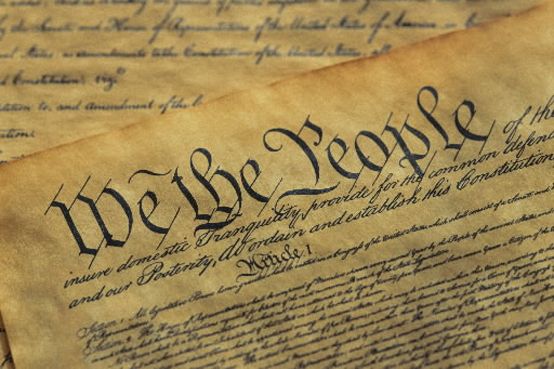Promises
of the Constitution: Yesterday, Today, Tomorrow
by
Pamela Romney Openshaw
Some say that our Constitution no longer works. They call it
unwieldy and outdated—a simple document for a simpler time They say that it is
not effective in our modern, sophisticated world of instant communication and
worldwide travel.
Our Constitution is not outdated. It is profoundly more than
a statement of political rules. It is a document of human nature—a statement of
man’s universal tendency to usurp and abuse power when given the opportunity.
History confirms the human tendency to abuse authority. The
world has always contained individuals who want power. Some want it for worthwhile
things. They reason that with power they could bring about much good. This may
be the case initially, but the annals of history are filled with tales of those
who began with honor and ended in corruption. Others began with dishonorable
intentions and carried out their desires of misery and heartache for others.
Lord Acton of Britain expressed it best: “Power tends to
corrupt, and absolute power corrupts absolutely.” In our modern world, we would
probably say: “Give someone an inch, and he’ll take a mile”—of our freedoms.
Our Founding Fathers were optimists but also realists. They
recognized the human thirst for power—that all humans have both strengths and weaknesses.
In the words of James Madison: “As there is a degree of depravity in mankind
which requires a certain . . . distrust, so there are other qualities in human
nature which justify . . . esteem and confidence.” The intent of our inspired
Founders was to create a government that encouraged the virtues in those who
lead while restricting their vices.
The Constitution places limits on these tendencies through
the application of checks and balances. It distributes power among the branches
of government so that no one branch is given more than a limited and carefully
controlled amount. This is the brilliance of the Constitution: while it creates
rules of political operation, it also sets rules of human conduct.
Those who want power often accuse the Constitution of being
slow and antiquated. For those in a hurry to get and use power, it is indeed
slow, and for a very good purpose.
The original Constitution of the United States, as it came
from the pen of the Founding Fathers, was a rich, perfectly balanced document
that controlled the use of power. Its parts were crafted to create a marvelous
working whole that distributed power rather than centering it in one individual
or group. This distribution of power among government branches is part of the
great genius of the Constitution and is known as the balance of power. Time
proved this government structure to be both simple and durable.
Some have unwisely tried to readjust the Constitution’s
balance of power. The Constitution as it stands today is an altered version, changed
over time by unwise constitutional amendments and inappropriate Supreme Court
decisions. Only with great thought, caution, and care should one alter such a
carefully balanced entity. An investment of time and prolonged deliberation is
required: if this changes, what will happen to that? Those who want a
government that increases freedoms, protection, and prosperity must be sure of
the results of their actions before proceeding.
There are times when the race goes to the turtle. This is
one of them.
- Pam

No comments:
Post a Comment